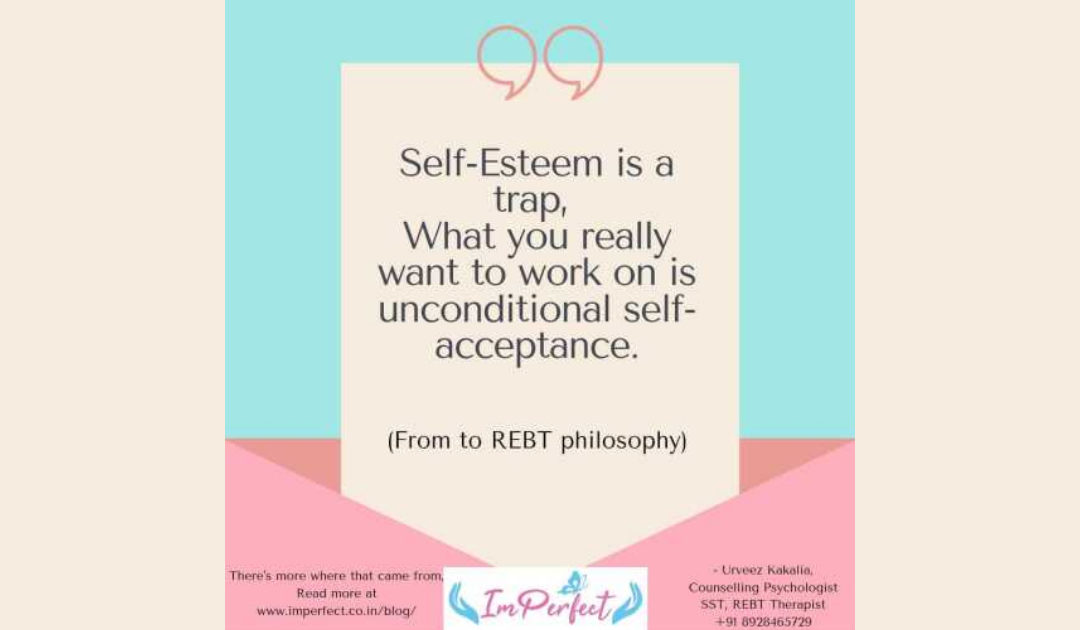I bet you’ve read a lot of articles on how to increase self-esteem. Some give you quick tips, some make you reflect, but all of them will probably land you in a trap. If you’re considering your own accomplishments or positives or anything about yourself to convince yourself that you are better- that probably will elevate your feelings about yourself. However, what happens to that self-esteem when there is contradictory evidence on the table.
Say for example you are unsuccessful at something, fail to complete a task or weren’t your best. The reality is right there. But if we were so focused on using our accomplishments to make us feel better, the contradictory evidence will surely plummet your self-esteem.
The mistake we are making in either instance and the same thing that is trapping us is that we are rating our entire selves and identities based on small pieces of information, or our performance on something specific, by generalizing it to our whole entire selves. Thus feeling better or worse. This is why working on increasing our self-esteem is not sustainable, because we fail to consider what happens when reality hits.
So, what should we do, when reality does hit. Say we failed at something, didn’t do something well, or something along those lines. Here is a more sustainable outlook. Acknowledge that we were unsuccessful. Understand that this doesn’t make us less than. What it actually only proves, is our humanness. Clearly, we don’t know any “perfect” humans. I definitely don’t consider myself to be one, nor do I expect any of my clients, or anyone I know to be one, which is why I called my practice ‘ImPerfect’. By virtue of being human and therefore imperfect, it, therefore, affirms our abilities to succeed, fail, do something well, moderately, badly, behave well, not so well, badly. But remember these are only good or bad as behaviors, or specific parts of ourselves. We are reflecting reality accurately when we rate our specific behaviors/ actions/ thoughts etc. but the jump we make to the irrational side is when we generalize this specific rating to our entire selves or identities.
Eg: I felt envious and wished my friend damaged her car because I don’t have my own car.
Irrational Global Rating: I had a mean thought which means I am a mean/ bad friend.
Rational Specific Rating: I had a mean thought.
Add to the rational specific rating: I am a fallible human being who is capable of having good thoughts, mean thoughts, neutral thoughts. It doesn’t make me a good or bad person based on this since I am too complex to rate as a whole based on something so small. Basically, my acceptance of myself as a complex, fallible human means that nothing individually determines my worthiness as a person.
This is the philosophy of unconditional self-acceptance, suggested by Rational Emotive Behaviour Therapy.

